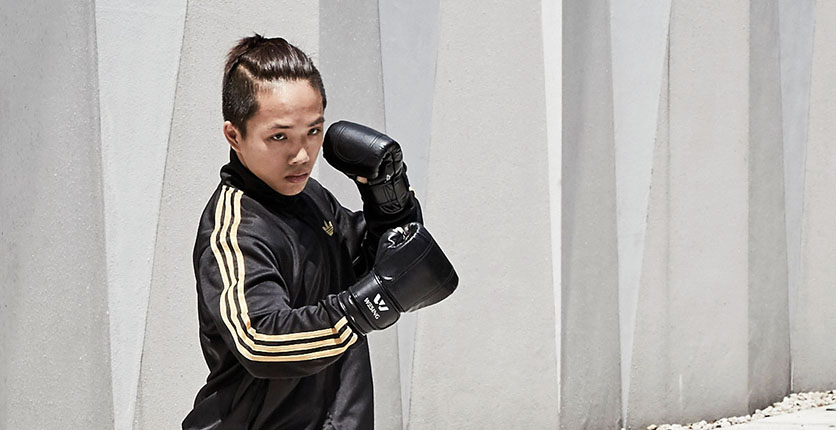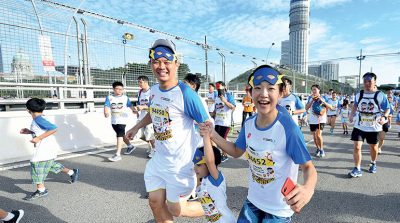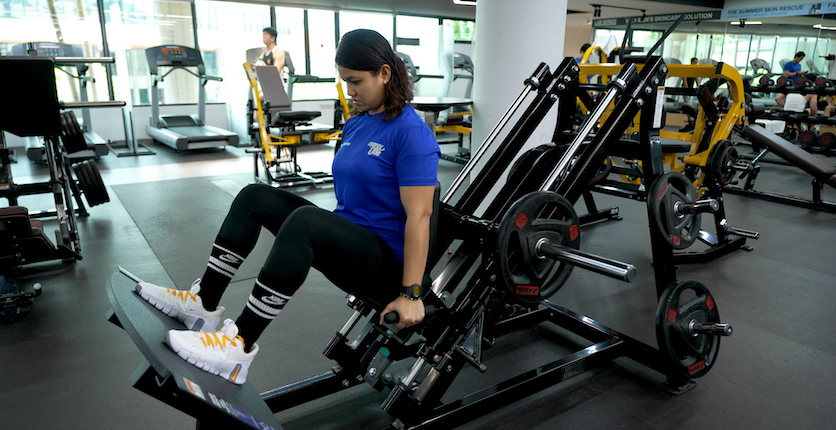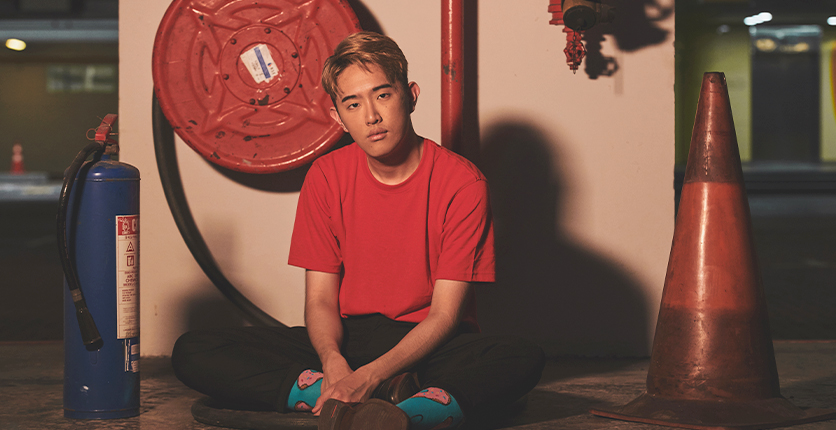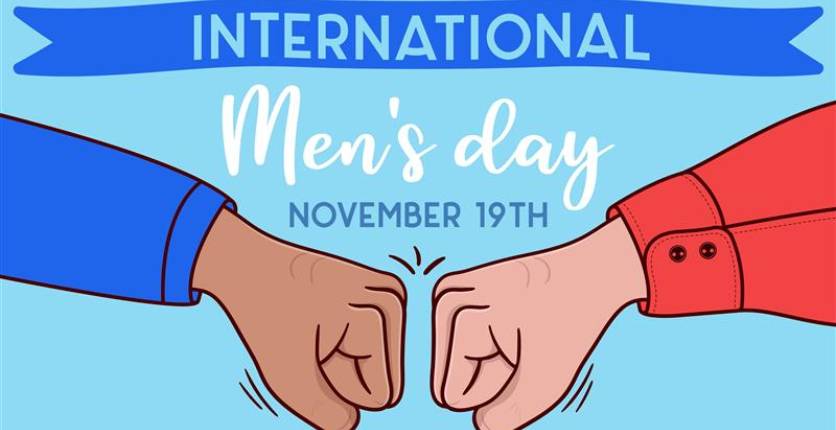National sanda Champion Eugene Ng is fighting to raise the profile of his sport, and nurturing the next generation with skills and values. Eugene doesn’t look like a typical Mixed Martial Arts (MMA) fighter, standing under 1.7m and weighing just over 60kg, he appears to be a trim and rather ordinary looking young man.
What’s sanda? Eugene describes it as Chinese mixed martial arts or Chinese kickboxing. He explained that sanda (also called sanshou) is a combat sport consisting of kickboxing, takedowns and locks, and is fought on a sparring platform similar to a boxing ring.
Behind his glasses, the 26-year-old could still pass for a tertiary student. But when he starts to demonstrate his moves – lightning-quick kicks and turns – one starts to believe him when he states, without airs, that he’s a three-time national champion and the current top sanda fighter in Singapore.
As much as he fights to achieve sporting excellence and glory for his country, he is also fighting to raise the profile of his relatively unknown sport, which has its roots in wushu and wrestling, and to nurture the next generation.
Born into Martial Arts
Speaking in between bites of steak, a late lunch with no carbohydrate in sight, Eugene pauses for a moment to think. He has been asked to recall how many injuries he has had to overcome in years of training and competition, a path he has embarked on since he was seven. Without exaggeration, he says: “I can’t remember. Too many to count.” He goes on to point out his nose, which is visibly altered from having been broken before, and his legs – both have experienced ligament damage, one has been fractured badly.
His shoulders? He has had both of them dislocated.
“My family has been supportive throughout my sporting career,” he says. “My mom is ‘unwilling but supportive’, as she is worried about my health and safety.” As he speaks to NSman, Eugene is in the midst of his comeback from a three-year injury hiatus, preparing for a competition in a few weeks’ time. He is avoiding carbs in his diet in an effort to meet weight requirements, as he usually fights in the 60kg category.
His father, the head coach of the national sanda team, started training Eugene in wushu and lion dance when Eugene was still in his formative years. At 12, he started to learn sanda from his father and then later his uncle, who is also an exponent of the sport that was invented in China as a regimented self-defence system.
“I learnt many skills and values from sports,” he says. “They taught me discipline, such as time management, and how to carry myself as an athlete and a coach.”
A Fighter’s Life
In between training, Eugene also works as a stunt actor, performing in local television productions, and is a freelance martial arts instructor and personal trainer. His clientele includes working adults and schoolchildren, as some parents send their kids to be toughened up and learn martial arts, while Eugene also gets engaged by schools to conduct after-school classes.
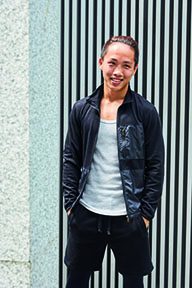 One of his most memorable and gratifying experiences as an instructor came at the MINDS Woodlands Gardens School, where he taught wushu to autistic students and came away impressed and moved. “It was only a five-minute demonstration, but the students really wanted to learn and had the spirit to train,” he says.
One of his most memorable and gratifying experiences as an instructor came at the MINDS Woodlands Gardens School, where he taught wushu to autistic students and came away impressed and moved. “It was only a five-minute demonstration, but the students really wanted to learn and had the spirit to train,” he says.
“Despite having represented Singapore in Southeast Asian, Asian and world competitions, I’ve received little recognition. The sport is practically unknown here.” Reflecting on the physical demands of sanda – he previously missed a year of competition due to an irregular heartbeat – he noted that he had around nine or 10 years left in the sport, and that he hadn’t given up on making further breakthroughs. “Other fighters are usually taller than me – and they have a longer reach,” he says wistfully. “But then you need to counter that by being quicker and fitter.”
Imparting More Than Skills
Mindful that the odds are low, given the modest profile of the sport, Eugene is still hopeful of finding and nurturing dedicated disciples with a genuine passion for sanda. “That is the reason why I choose to become a martial arts coach. Not only can I inspire my students to train and compete, but also guide them with values to become better people like how martial arts did for me,” he says. “With values such as discipline and perseverance taught, I hope to impart my knowledge as a coach and athlete to my students, in hope that they learn the best of combat sport.” In time to come, he hopes to put his marketing degree to good use and embark on a mission to raise awareness of sanda on a larger scale. In the meantime, he is juggling training, teaching, stunt acting and dietary prudence.
“I haven’t had Hokkien mee for five months now,” he shares with a laugh, rueful about his little-known sacrifice in the pursuit of sporting success.
